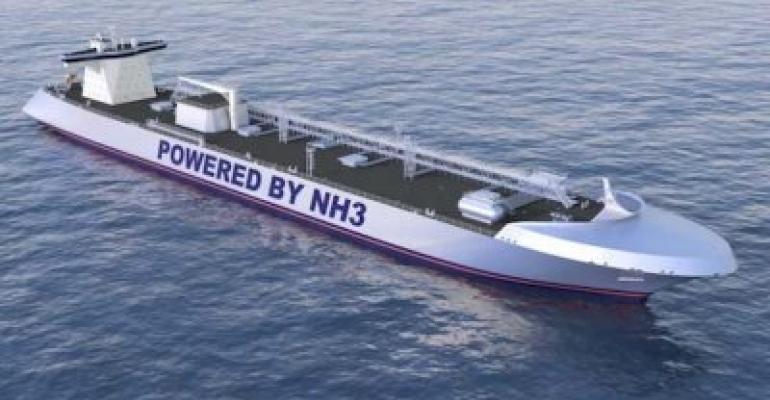Ammonia can be used as an alternative marine fuel to reduce harmful emissions from ships, according to a new research published by Netherlands-based ship design and engineering firm C-Job Naval Architects.
The research is based on a new concept design of an ammonia carrier powered by the gas as its own cargo. The study shows that ammonia can be used as a marine fuel if a number of safety measures are included in the design.
“Reviewing all ammonia power generation options, the Solid Oxide Fuel Cell (SOFC) is clearly the most efficient,” said Niels de Vries, lead naval architect at C-Job Naval Architects and research lead.
“However, it does have practical challenges as the power density and load response capability are not on an acceptable level yet. Therefore, in the short term applying the internal combustion engine is the way to go,” de Vries said.
Read more: Could 'green ammonia' be the zero carbon future fuel for shipping?
In 2017, C-Job Naval Architects established a consortium with Proton Ventures and Enviu to investigate ammonia as marine fuel. It further joined Ammonia Energy Association in 2018 to study the topic.
With the completion of this theoretical research, C-Job Naval Architects is now moving towards the next phases, which includes laboratory testing, pilot and evaluation.
“While this research is unique in its scope and provides a valuable first step towards the application of ammonia as a marine fuel, further research is still required to explore its full potential and feasibility,” de Vries said.
C-Jobs Naval Architects noted that with the IMO aiming to reduce total annual greenhouse gas emissions by at least 50% by 2050 compared to 2008 and eventually fully eliminate harmful emissions, the global maritime industry will need to seriously look into renewable fuels like hydrogen, ammonia and methanol.
Read more: Methanol – an economic alternative marine fuel of the future?
Copyright © 2024. All rights reserved. Seatrade, a trading name of Informa Markets (UK) Limited. Add Seatrade Maritime News to your Google News feed.


